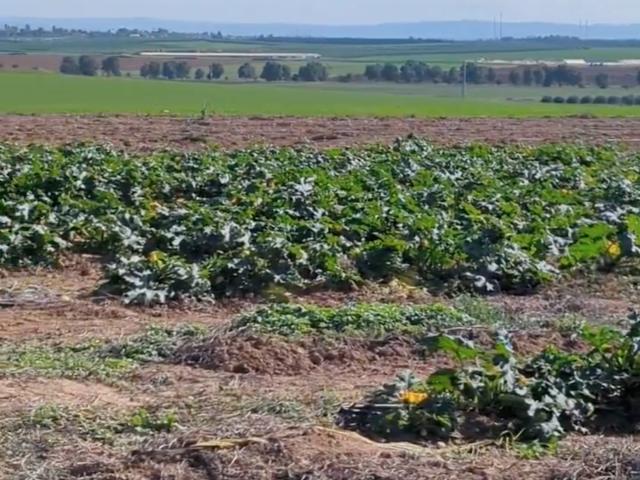In a dramatic and unprecedented move, the IDF has completely halted agricultural activities near the volatile Gaza border, citing a critical new security assessment. This sweeping prohibition impacts the lush and fertile lands known as "Israel’s vegetable patch," a vital artery for the nation's food supply. Historically, this area alone has fueled the country with 75% of its vegetables, 20% of its fruits, and a substantial 6.5% of its milk supply.
The directive from the military comes as a severe blow to the region's farmers, who are still grappling with the devastating aftermath of the October 7th attacks. These attacks saw horrific acts of violence against farmers and farmhands, widespread destruction of fields by fire, and the abandonment of livestock, all compounded by initial disruptions in water and power supply which wreaked havoc on the agricultural infrastructure.
Seven months after Hamas’ October 7 invasion, the IDF has decided it’s too dangerous to carry out agricultural work near the security fence with the Gaza Strip today. Anything in the 0-4km range from the border will require permission from the regional brigade.
— Eylon Levy (@EylonALevy) May 8, 2024
The region’s farmers, who have already been battered by a slew of challenges ranging from incendiary balloons launched from Gaza, numerous military campaigns, and the global disruptions caused by the Covid pandemic, have also faced an existential threat from the government’s aggressive import duty cuts prior to the Hamas assault on their communities. This economic policy has sharply undermined local produce, particularly affecting the Gaza border area and extending its harsh effects to fruit growers on the Golan Heights and in the Upper Galilee. Without immediate reversal of these duty cuts or substantial state support, local agriculture may face complete obliteration. Despite the policy's usefulness in the wake of the outbreak of the war, it is still a thorn in the sides of farmers who have worked the land and are struggling to rebuild what was lost.
Despite promises of NIS 770 million in governmental aid to offset the impact of these import tax reductions, many farmers express outrage and despair, claiming the promised support has not materialized. This has left them vulnerable not only to the whims of market forces but to the profound indignity of feeling mocked and abandoned in their time of need.
Complicating matters further, a recent Turkish embargo on exports to Israel threatens to deepen the agricultural crisis. While some importers remain optimistic about sourcing alternatives, the reality points to inevitable price hikes for consumers who are already struggling with the inflationary realities of the war as well as potential scarcity of some products in the market. However, amidst these turbulent times, there remains a glimmer of hope as local farmers see an opportunity to reclaim their market from the clutches of cheap Turkish imports, bolstered by returning foreign workers and state compensations. But this reclamation can only happen if the farmers are allowed to work. This new Israel Defense Force order will make that next to impossible.
1/2 People don't understand how easy going Israeli's actually are.
— Tina (@Tina34832552745) May 3, 2024
Turkey cuts off trade relations? no problem we'll get it from somewhere else
Biden holds M4 Rifle shipments to Israel, no problem we will mass produce them ourselves for cheaper
⬇️
This situation marks a critical juncture for Israeli agriculture, particularly for those who toil near the fraught Gaza border. It underscores the urgent need for a strategic reassessment of policies to safeguard and sustain the backbone of Israel’s food security.


